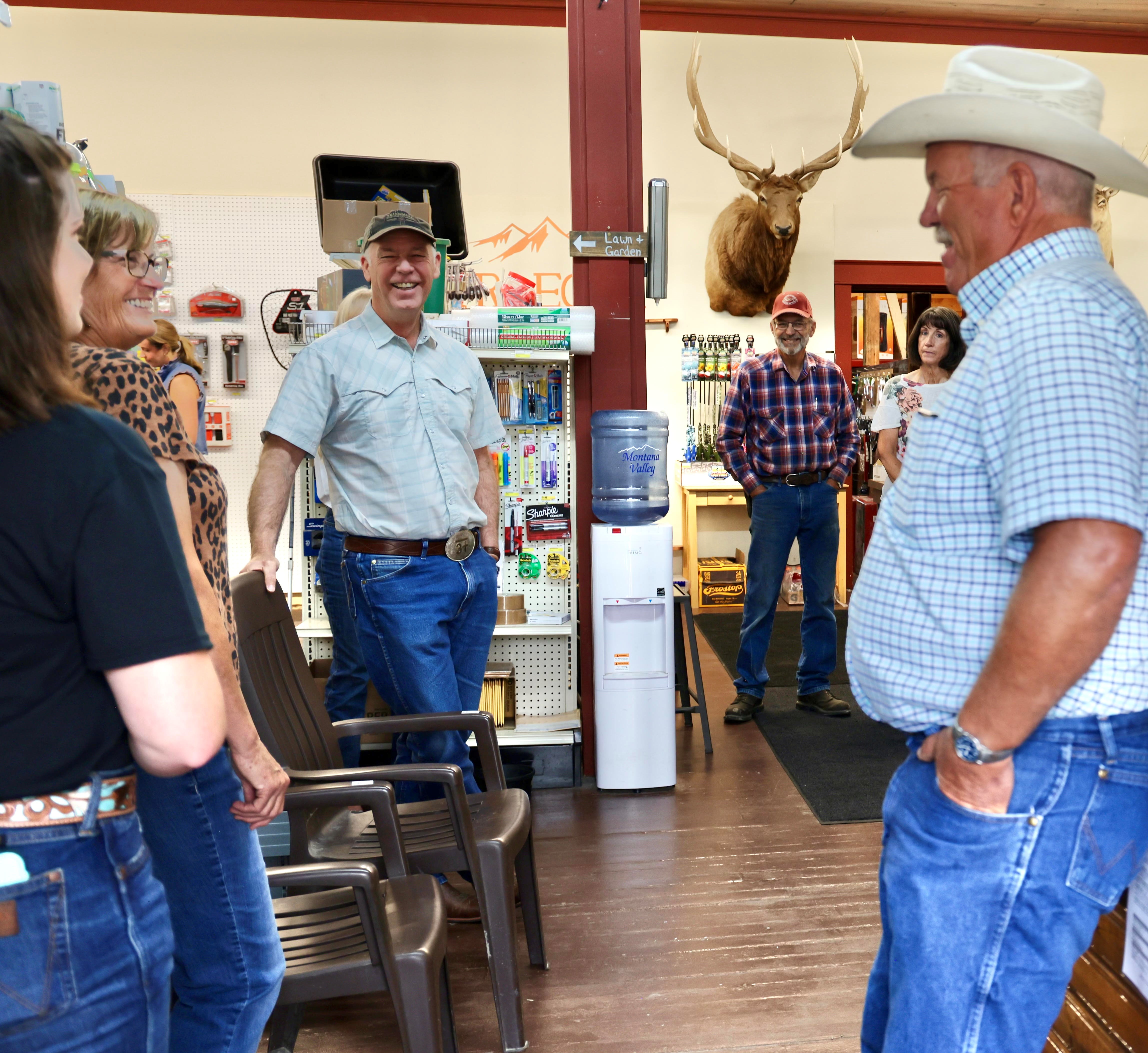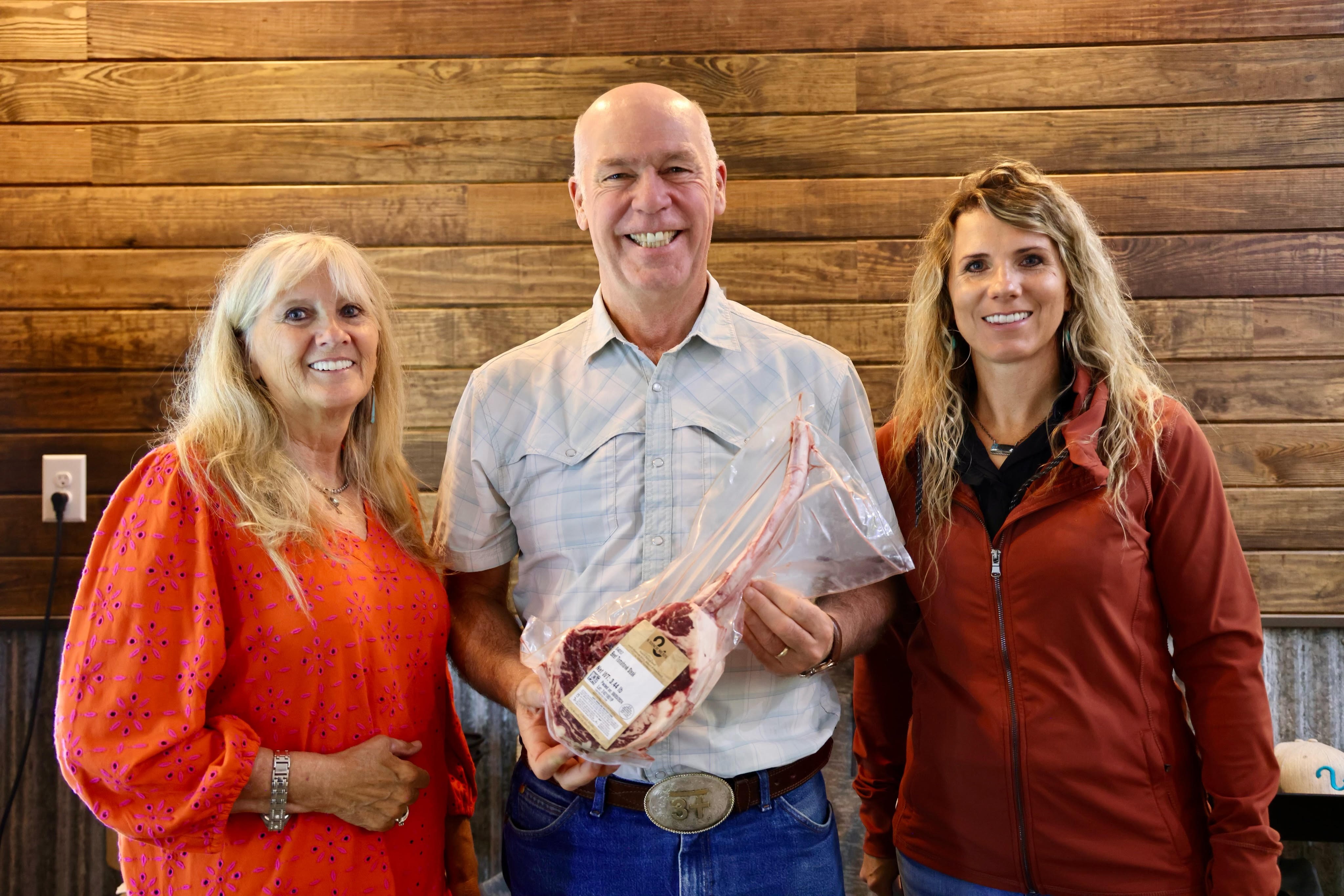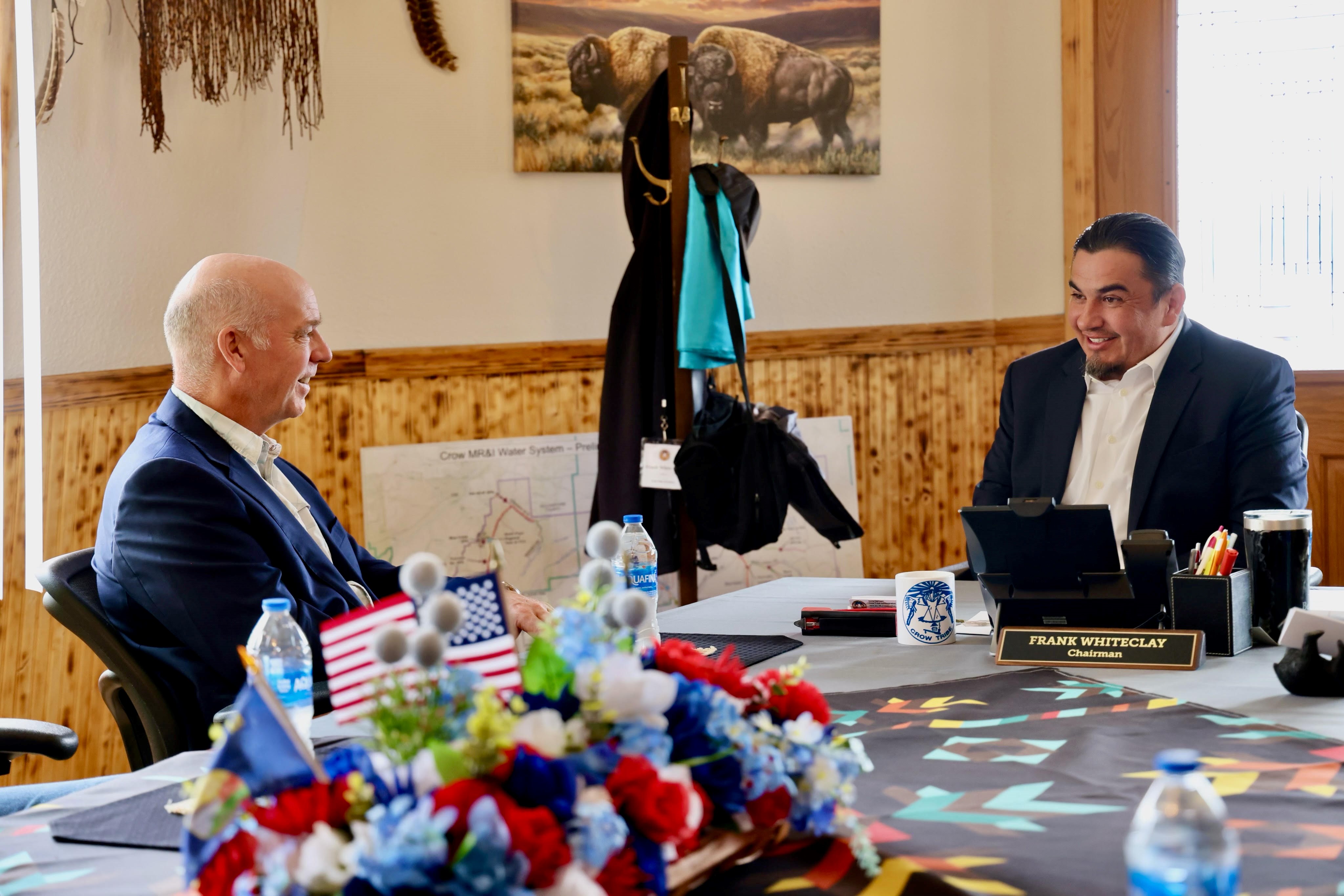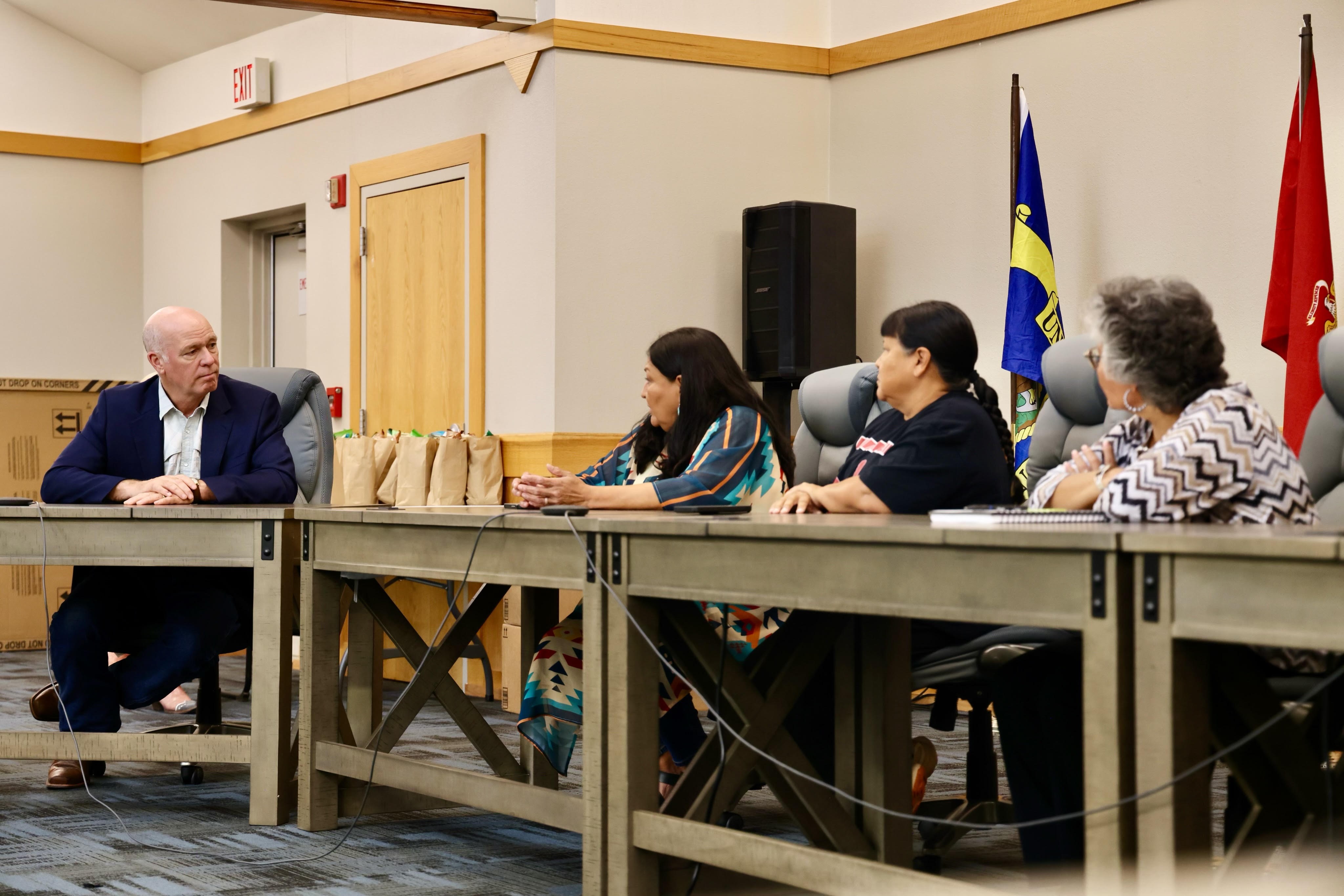Governor Gianforte Hears From Montanans on 56 County Tour
LAME DEER, Mont. – Governor Greg Gianforte today continued his 56 County Tour hearing from Montanans in Treasure and Big Horn counties and visiting with tribal leaders on the Crow and Northern Cheyenne reservations.
“We're committed to opening doors to greater opportunity to bring the American dream into reach for all Montanans,” Gov. Gianforte said. “From increasing affordable, attainable housing to boosting our workforce, we will continue to invest in initiatives that make our state and communities stronger.”

Gov. Gianforte visiting with producers at Hysham Hardware & Ag Supply
Meeting with producers in Treasure County, the governor kicked off the day at Hysham Hardware & Ag Supply to visit with the owners and highlight their service to the ag community.
In May 2020, Dave and Shelly Rickett purchased the business to increase producer access to goods and services. Bringing his experience as an agronomist for nearly 30 years, Dave Rickett helps local producers and sells lumber, supplies, and custom hay cutting to his customers in Hysham.
During the visit, the governor fielded questions from a dozen residents and producers on the importance of rural health care and education and discussed the benefits of his work to reform the business equipment tax.
To help small businesses, as well as family farms and ranches, the governor increased the business equipment tax exemption from $100,000 in 2021 to $1 million, eliminating the tax burden for 5,000 Montana businesses.

Gov. Gianforte with Marcie Scott (left) and Hannah Knudsen (right) at the S Ranch Meats warehouse in Hardin
Meeting with ranchers in Big Horn County, Gov. Gianforte stopped by the S Ranch Meats warehouse in Hardin to learn more about their investment and plans for expansion.
As a fourth-generation ranch, S Ranch Meats operates a feed lot, processing facility, warehouse, and storefront to produce and sell their Montana beef. Owners Jim and Marcie Scott, and daughter, Hannah Knudsen, met with the governor to share more about their work to feed the community.
“During COVID, we felt the crunch that a lot of producers felt – there was nowhere to get your cattle processed. And we were short on beef in the stores so we just wanted to do something about it, and give back to the local community. So we opened our processing plant, got our USDA certification, and now we sell our beef online and in the community so Montana consumers can get Montana beef,” Hannah said.
Increasing meat processing capacity in the state to add value to Montana commodities is among the governor’s top priorities. In 2020, the governor approved American Rescue Plan Act Agriculture Infrastructure Grant Program awards with over $12.3 million awarded to Montana meat processors.

Gov. Gianforte meeting with Chairman Whiteclay in Crow Agency
Traveling to Crow Agency, the governor met with Crow Tribe Chairman Whiteclay and Vice Chairman Lawrence DeCrane to discuss the tribe’s recent progress to increase access to daycare, housing, and employment opportunities for the next generation of Montanans.
Visiting Lame Deer, Gov. Gianforte also met with Northern Cheyenne Tribe President Serena Wetherelt, Vice President Ernest Littlemouth, and other senior council members and heard from the group on priorities to improve the delivery of behavioral health services, increase suicide awareness, and invest in public safety and law enforcement officers.

Gov. Gianforte meeting with Northern Cheyenne tribal council members in Lame Deer
Recently, the governor announced the next allocations of $300 million in funding secured last year to reform and improve Montana’s behavioral health and developmental disabilities services systems.
Last month, Gov. Gianforte allocated $1 million to conduct a statewide study to determine the appropriate level of funding needed to help supplement housing costs for low-income Montanans served in the state’s behavioral health system. He also allocated $6.5 million in one-time grants to Tribal nations and Urban Indian Health Organizations to support and improve behavioral health services provided in Native American communities.
###